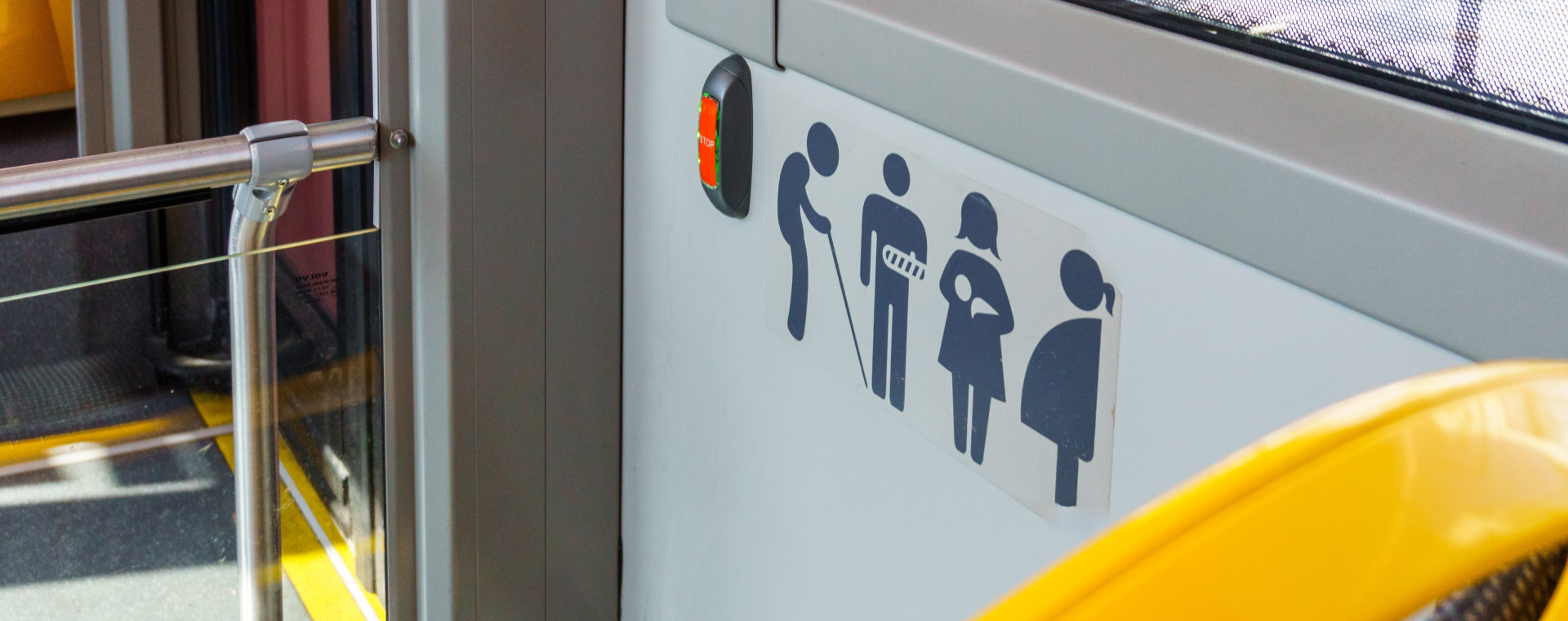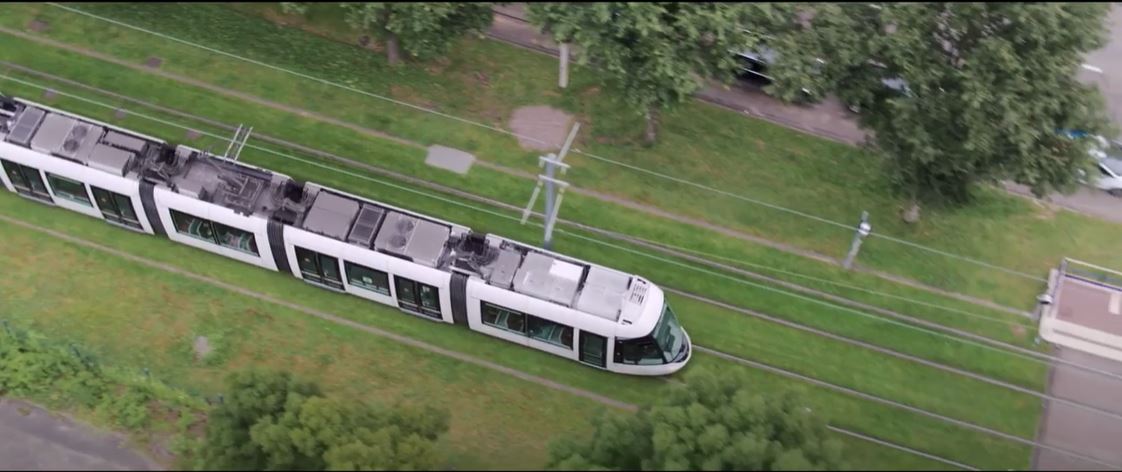Interview
Social Cohesion
Affordable Mobility: ‘The European Parliament has its say’
-
Valérie Devaux
Member of the European Parliament

The Mobility Times spoke with Valerie Devaux, MEP, about European efforts to make mobility accessible, affordable and sustainable.
How do you perceive the notion of "transport poverty"? Is it a recurring problem among your constituents? What solutions can be implemented to address it? What role should public transport play?
My own constituency is structured around the economic, social and administrative activity of a central city, and as an elected official there I am familiar with transport poverty issues which are very real.
Many residents in the periphery depend on their cars for travel and we know that the share of transport-related costs in their budgets has been growing for several years, for vehicle purchase, maintenance, fuel, insurance and so on. These difficulties are occurring in the context of an energy transition in transport, which can be perceived very diversely, as we saw with the Yellow Vest movement in France.
I am convinced that this transition cannot become a reality if we do not support the most vulnerable populations. The question of tools to be mobilised therefore arises for public decision-makers, whether local, national, or European. I believe each level has relevant tools. In my region, the Hauts-de-France, young people can receive financial aid to obtain their driver’s licence to help them to secure employment. At the European level, our action levers are regulatory and financial.
Solutions must also be sought in terms of changing practices and technological developments. New options such as shared autonomous vehicles or autonomous shuttles will, for example, be available in a few years and will offer interesting solutions in the mobility landscape.
Do you consider that transport poverty is sufficiently taken into account within European institutions - at the Commission, Council, Parliament, and within the TRAN committee of which you are a member? What place does public transport occupy in your committee's work?
With the ecological transition in general, and mobility in particular, brought to the forefront during the previous mandate, the subject has automatically gained in importance. The key challenge is not to leave a part of the population, on the periphery of cities or of modest means, by the wayside. The notion of transport poverty has therefore become a recurring subject to the point of being included among the priorities of the Trans-European Transport Network, at the initiative of the European Parliament.
As the budget marathon begins, it is clear that part of our ability to act will depend on budgetary decisions made, in a context we know to be constrained. But I perceive a genuine awareness of the importance of the issue in all European institutions: the publication of a recommendation by the European Commission to move towards accessible, fair, and affordable mobility seems to me a positive signal.
The European Union has understood that the Green Deal can only succeed if it is socially acceptable and territorially balanced. The question is not only technical but deeply political.
With the Social Climate Fund, but also the ongoing negotiations on the future Multiannual Financial Framework (MFF), do you think that European ambitions in terms of public funding dedicated to shared mobility solutions and public transport are up to the challenges? Will they really lead to citizens being offered credible alternatives to cars?
Of course, we are waiting to see how the subject will be addressed in the budget proposal announced by the European Commission in July. The Social Climate Fund is expected to mobilise €86.7 billion between 2026 and 2032, which strikes me as a real lever for action to tackle transport poverty. It should be noted that this fund is supplemented by ETS 2 and the Carbon Border Adjustment Mechanism, so the final amount will depend on the full implementation of these instruments.
We must also mention the Connecting Europe Facility, which has been the pillar of the Union's financial action in transport since 2014 with a budget of nearly €26 billion in the previous financial period. , It is primarily aimed at infrastructure so it is an essential element of mobility in Europe as it allows intervention where regions lack sufficient budgetary capacity to complete often nine-figure financing plans. The entire transport Committee and more broadly the community of transport professionals are mobilised to defend this fund and its budgetary ambition. They are crucial conditions for European mobility and the competitiveness of our economy. The orientations of this instrument will also have to be defined and we will ensure that they take into account the imperatives of a socially acceptable transition.
The construction of a European mobility market is based on common rules of competition, openness, and accessibility. But their implementation remains uneven across countries and market segments. Do you think that the current European legislative framework allows a supply-side shock to encourage citizens to choose alternative mobility solutions instead of private cars? What do you expect from this mandate to promote the emergence of new collective mobility offers? Are the member states doing their bit?
On the issues of openness and competition, European policy is starting to bear fruit. Leaving aside the issues of railway open access that do not really concern everyday mobility, we can note that PSO contracts are starting to be awarded in rail, and increasingly for bus networks. We are therefore moving from theory to practice, with new entrants finally having the opportunity to demonstrate their expertise. It will be up to passengers and local authorities to determine whether these new players have indeed paved the way for a diversification of the offer, an increase in quality and a reduction in prices. In this respect, the coming years will allow us to go further in the application of the Fourth Railway Package, as some regional contracts have been awarded directly to the incumbent operator by way of derogation from the principle of competitive tendering for subsidised services.
More generally, I think that Member States have moved beyond the initial mistrust that may have been perceived during the negotiation of the major texts on sectoral liberalisations. They have now integrated the opportunities that competition can bring, both domestically in terms of service quality and abroad through the conquest of new markets.
Would you like to add a message?
We can never emphasise enough how closely mobility is linked to the notion of freedom for our citizens. If the transport transition is poorly explained and badly implemented, it will simply be perceived as disconnected from everyday realities.. My political DNA prevents me from accepting this: we must force ourselves to look at these issues without dogmatism, be it for the market organisation to be favoured, concrete support to be given to the most vulnerable populations or the energies to be favoured in the context of this transition. The European Parliament is the right place to be involved in these arbitrations and to weigh in favour of accessible, affordable and sustainable mobility.
-
 Interview
Design
Interview
Design
How can individuals improve their urban environment?
Zeina Nazer, Co-founder of Cities Forum and vice president of ITS UK Road User Charging Forum
-
 Interview
Decarbonization
Interview
Decarbonization
How can we catalyze the transition towards carbon-neutral transportation?
Katarina Cséfalvayová, Co-founder and director of the Institute for Central Europe
-
 Interview
Social Cohesion
Interview
Social Cohesion
How can we tackle mobility poverty?
Sébastien Bailleul, Director of Institutional and European Relations at Wimoov
-
 Interview
Access
Interview
Access
Will tomorrow’s mobility be inclusive and fair?
Dominique Riquet, Member of the European Parliament
-
 Interview
Common Good
Interview
Common Good
What continuum exists between social mobility and geographical mobility?
In this interview, Margaux Nebout tells us about the link between social mobility and geographical mobility.

